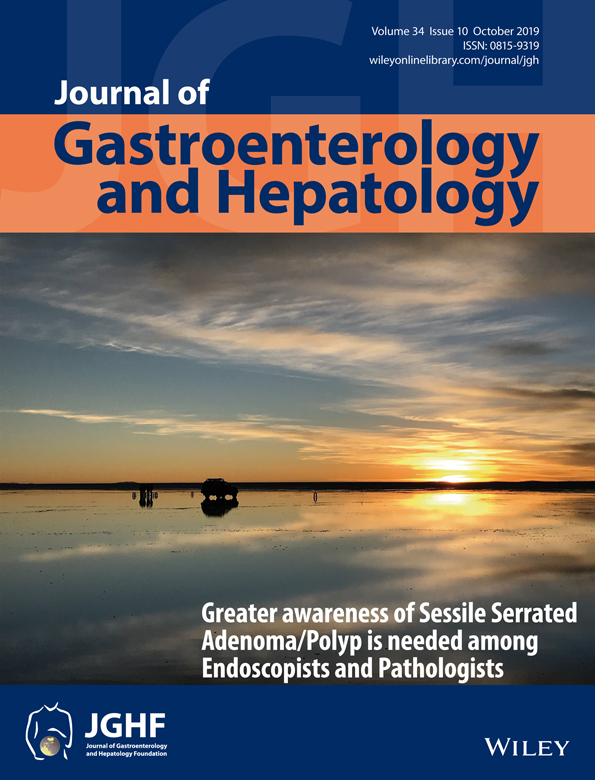Noneffectiveness of electroacupuncture for comorbid generalized anxiety disorder and irritable bowel syndrome
Abstract
Background and Aim
Comorbid generalized anxiety disorder and irritable bowel syndrome are common and therapeutically challenging. We aimed to assess the effectiveness of electroacupuncture in relieving anxiety and bowel symptoms in Chinese adults with this form of comorbidity.
Methods
In a single-blind randomized sham-controlled trial, subjects with comorbid generalized anxiety disorder and irritable bowel syndrome were randomly assigned to receive 10 weekly sessions of electroacupuncture or sham electroacupuncture. Patients were assessed at baseline, immediately after intervention and at 6-week follow-up. Primary outcome was anxiety (7-item Patient Health Questionnaire section for anxiety). Secondary outcomes included bowel symptoms (bowel symptoms questionnaire), depressive symptoms (9-item Patient Health Questionnaire), somatic symptoms (15-item Patient Health Questionnaire), and health-related quality of life (EuroQol-5 Dimensions).
Results
Eighty subjects, 40 in each arm, were randomized. All but two in the sham group completed 10 weekly sessions. There was no significant difference in the proportion of patients experiencing significant (≥ 50%) reduction of anxiety symptoms between the two groups immediately after intervention (32.4% vs 21.6%, P = 0.06) and at 6-week follow-up (25.7% in electroacupuncture vs 27% in sham, P = 0.65). Anxiety, depressive symptom, and bowel symptom severity did not differ significantly between electroacupuncture and sham groups.
Conclusions
Findings failed to support the effectiveness of electroacupuncture for comorbid generalized anxiety disorder and irritable bowel syndrome. Further studies are needed to identify effective acupuncture treatment protocols for such comorbidity.




